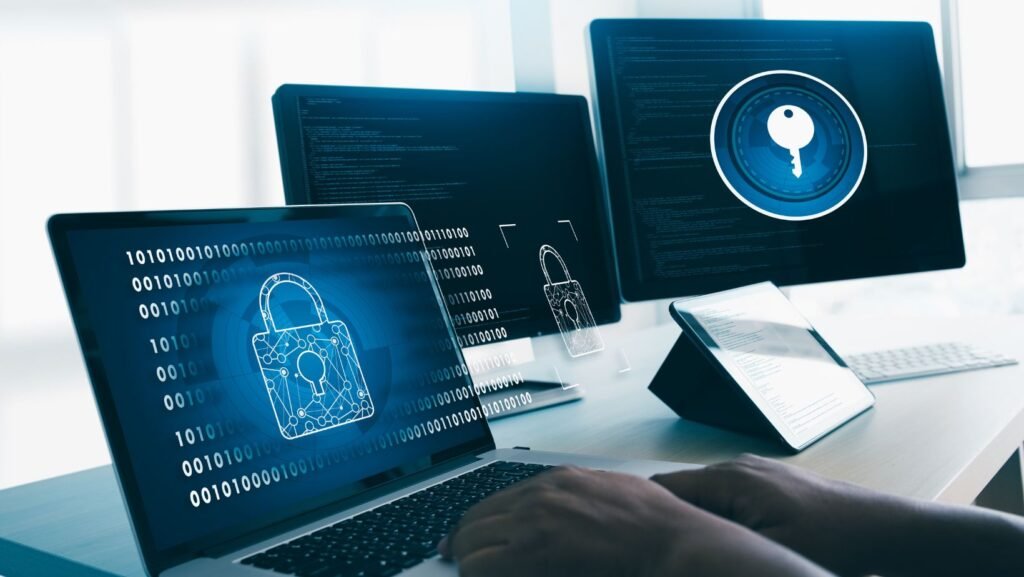How Can You Protect Yourself from Internet Hoaxes Cyber Awareness
Are you tired of falling for internet hoaxes and scams? Worried about your online security and privacy? Well, you’ve come to the right place. In this article, I’ll be sharing some valuable tips on how you can protect yourself from internet hoaxes and increase your cyber awareness. With the ever-evolving landscape of the internet, it’s crucial to stay one step ahead of the scammers and fraudsters. So, grab a cup of coffee and let’s dive into the world of cyber awareness together.
In today’s digital age, it’s not uncommon to come across fake news, phishing emails, and fraudulent websites. But fear not, because I’m here to equip you with the knowledge and tools you need to stay safe and secure online. We’ll explore practical strategies to identify and avoid internet hoaxes, as well as ways to enhance your cyber awareness. From recognizing suspicious links to strengthening your passwords, we’ll cover it all. So, if you’re ready to take control of your online presence and protect yourself from cyber threats, keep reading.
The Importance of Cyber Awareness
As I delve deeper into the world of internet hoaxes and cyber awareness, I can’t stress enough how crucial it is to be informed and vigilant. The digital landscape is constantly evolving, and with it comes new and sophisticated ways that scammers and fraudsters use to deceive unsuspecting individuals. It is essential to stay ahead of the game and protect ourselves by being aware of the risks and knowing how to identify potential threats.
Why is cyber awareness important?
- Protecting personal information: In this era of digital connectivity, our personal information is more vulnerable than ever. Cybercriminals use various techniques, such as phishing scams and malware, to steal sensitive data like passwords, social security numbers, and financial details. By staying aware and informed, we can recognize these threats and take measures to safeguard our personal information.
- Avoiding financial loss: Internet hoaxes and scams can have dire financial consequences. From pyramid schemes to fraudulent online marketplaces, cybercriminals capitalize on people’s trust and naivety. Developing a sense of cyber awareness allows us to identify suspicious activities and make informed decisions, preventing financial losses.
- Protecting our identity: Identity theft is a rising concern in the digital age. Cyber attackers can use stolen information to open credit accounts, obtain loans, or even commit crimes in our name. By staying cyber aware, we can detect signs of identity theft and take immediate action to mitigate risks.
- Maintaining online reputation: In the age of social media, our online presence is more important than ever. Falling prey to internet hoaxes or scams can not only harm our personal lives but also tarnish our professional reputation. Awareness and caution online can help us avoid sharing false information or falling into the trap of engaging in harmful activities.
Cyber awareness is not just a buzzword – it is a crucial skillset for navigating the digital world safely. By understanding the importance of cyber awareness and implementing the right strategies, we can protect our personal information, finances, identity, and reputation from the dangers of internet hoaxes. Stay informed, stay cautious, and never underestimate the power of being cyber aware.
Tips to Identify Fake News and Scams
In today’s digital age, it’s more important than ever to be able to discern between real news and scams online. As an expert in cyber awareness, I’ve gathered some essential tips to help you navigate the vast ocean of online information and protect yourself from falling victim to internet hoaxes. Here are a few key strategies to identify fake news and scams:
- Double-check the source: Before believing or sharing any news article or information, I make a habit of verifying the source. If the source is unfamiliar or seems suspicious, I dig deeper to ensure its credibility. Reliable news sources often have a long-standing reputation and can be trusted for accurate information.
- Look for credible references: When reading an article, I look out for reliable references and sources cited within it. If an article lacks any proper references or only relies on anonymous or unverifiable sources, it’s a warning sign of potential fake news. Trustworthy articles should provide links, quotes, or citations to support their claims.
- Cross-check with other sources: To ensure accuracy, I cross-check information across multiple trustworthy sources. This way, I can get a more comprehensive view and avoid relying solely on one source that could potentially be biased or unreliable. According to a study by Pew Research Center, only 59% of Americans can consistently identify fake news, emphasizing the need to cross-check information.
- Pay attention to the headline: Often, fake news is designed to grab attention and generate clicks through sensationalized headlines. I always read beyond the headline and scrutinize the content of the article. Misleading or exaggerated headlines tend to be a red flag for potentially unreliable information.
- Consider the author’s expertise: Assessing the author’s qualifications and expertise is crucial. If the author lacks credibility or has a history of spreading misinformation, it’s a clear sign to approach the article with caution. Fact-checking the author’s credentials and reputation can provide valuable insight into the reliability of the information presented.
By applying these tips, I’ve been able to protect myself from falling victim to internet hoaxes and scams. Developing a habit of critical thinking and skepticism can go a long way in safeguarding your online presence and staying well-informed. Stay alert and remain cyber-aware to avoid becoming a victim of online deception. Remember, knowledge is power in the ever-evolving digital world.
Conclusion
In today’s digital age, it is crucial to be aware of the various internet hoaxes and scams that can compromise our online security and privacy. By following the tips and steps mentioned in this article, we can protect ourselves from falling victim to these cyber threats.
Double-checking sources, looking for credible references, and cross-checking information are essential practices to verify the authenticity of news and prevent the spread of misinformation. Additionally, paying attention to headlines and considering the author’s expertise can help us determine the reliability of the content we encounter online.















































































































